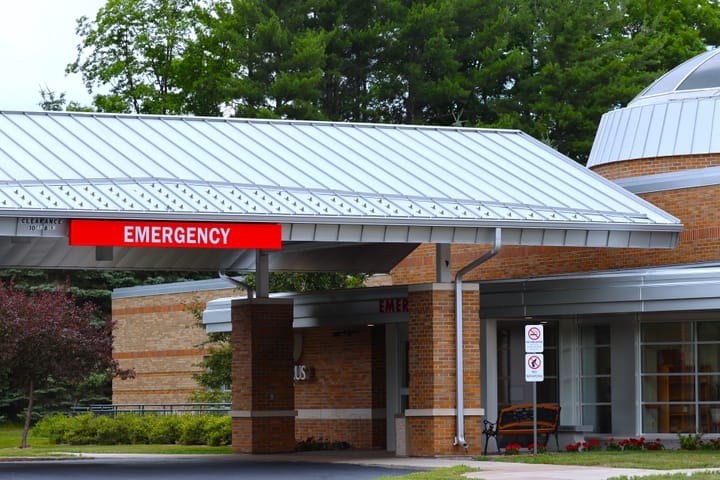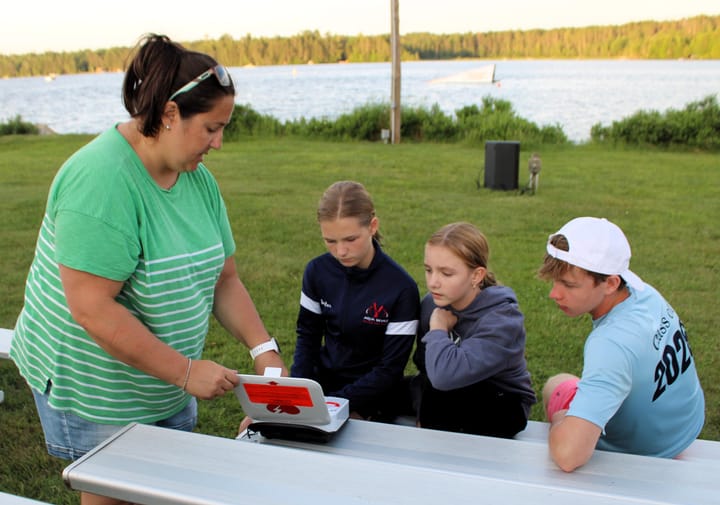Gov. Evers Signs 2025-27 Biennial Budget
Northwoods to see income tax relief, EMS support, long-term care funding
Gov. Tony Evers signed off on the bipartisan 2025-27 biennial budget July 3 after months of negotiations between legislative leaders. Evers' office applauded the passage as "a win for Wisconsin's kids, families and communities," calling it the "pro-kid" budget.
Evers had previously declared 2025 as the Year of the Kid in Wisconsin, and prioritized meaningful investments in students of all ages from K-12 to higher education institutions within the biennial budget, securing significant investments in child care, K-12 schools, and the University of Wisconsin System.
"Through this bipartisan budget, we are making progress on key state priorities to move Wisconsin forward: making critical investments supporting our kids and schools, lowering costs of child care and household bills for working families, stabilizing our child care industry, cutting taxes for seniors and middle-class families, ensuring Wisconsinites have access to healthcare, continuing to fix our roads and bridges, and significant investments in our local communities, among much more," Evers said.
As enacted, the 2025-27 Biennial Budget approved by the governor includes:
- Nearly $1.4 billion in spendable revenue for K-12 schools, with the largest increase to the special education reimbursement rate in state history;
- The largest increase to the UW System in nearly two decades;
- Over $360 million to support Wisconsin's child care industry and help lower child care costs for working families, a third of which is in direct payments to providers;
- A tax cut for working and middle-class families, bringing tax cuts enacted by Gov. Evers since he took office to over $12.6 billion;
- Lowering out-of-pocket energy and utility costs for Wisconsinites by eliminating the sales tax on household energy bills, saving Wisconsin households over $178 million over the next two years;
- Supporting healthcare access, especially in rural communities, and continuing funding for BadgerCare;
- Continuing support for Wisconsin farmers and producers through mental health services for farm families, food security initiatives, producer-led watershed protection efforts, and bolstering the supply chain;
- Fixing Wisconsin's roads and bridges and making sure the state's infrastructure meets the needs of a 21st-century workforce and economy, including 3% increases in each year for General Transportation Aids and $150 million to repair rural roads and bridges;
- $14 million investment in local communities across the state through municipal service payments to ensure local communities have the resources they need to meet basic and unique needs alike; and
- Funding to support the operations of the Wisconsin Veterans homes and a 5% increase for county and tribal Veterans Service Offices.
Gov. Evers also exercised his constitutional veto authority to partially veto aspects of the budget that he thought were outside of the bipartisan budget negotiations.
Two Northwoods Initiatives Vetoed
Rep. Rob Swearingen said this budget included several key wins for the Northwoods, including income tax relief, record funding for nursing homes and long-term care, more support for EMS and local tourism, and new investments in our communities.
A number of budget motions Swearingen authored were adopted by the Joint Finance Committee and included in the final bill, including $750,000 for Lakeland STAR School and STAR Academy, which supports students with autism through life-skills-focused learning; $255,000 for Lakeland Airport upgrades to rehabilitate the runway and lighting at the Northwoods’ busiest airport; $1.75 million for Deerskin River dredging to restore navigability, improves fish habitat, and protect lake access; and $1 million for ATV/UTV trail mapping software that would develop a statewide trail app to improve safety, tourism and access.
While those motions were included in the final budget, Gov. Evers used his veto pen to "turn his back on the Northwoods" and remove the funding for Lakeland STAR and the Deerskin River restoration, according to Swearingen.
"For the fourth consecutive budget, Evers blocked $750,000 in funding for the Lakeland STAR School and Academy, a life-changing program serving students with autism and special needs across the Northwoods," he said. "Gov. Evers calls this the 'Year of the Kid' — unless you're a child with special needs from the Northwoods. This is about giving kids in our communities with special needs the opportunity to learn, grow and thrive. Every time he vetoes this funding, it's Northwoods families who pay the price."
Evers claimed he could not approve funding for the Deerskin River restoration because the legislature declined to reauthorize the Knowles-Nelson Stewardship Program.
"Let's call it what it is — a lame excuse," Swearingen said. "This project is about fixing problems caused by state agency decisions and protecting our local lakes and fish habitat. Blaming the Knowles-Nelson program is just political cover. Local government and residents have been asking for this help for years. The only thing standing in their way in the governor's pen."
Evers went on to say in his radio address the new budget is a reflection of bipartisan compromise. "That means everyone gets something they want, and no one gets everything they want," he said. "I spent months working together with Republican leaders to reach common ground and find consensus. Today (July 3), I am signing a bipartisan budget compromise that reflects those months of conversations and is supported by a majority of the Legislature with bipartisan support from Republicans and Democrats alike.
"While this budget looks drastically different than the budget I proposed and does not include everything I asked for and hoped it would, frankly, I believe most Wisconsinites would say that compromise is a good thing because that is how government is supposed to work."
Felzkowski Votes 'No'
Meanwhile, Sen. Mary Felzkowski voted "no" on the passage of the biennial budget, stating the budget was rushed ahead of the passage of President Trump's One Big Beautiful Bill so the state could take advantage of what she calls a "little-known gimmick" — the Hospital Assessment and Access Payments provision.
Felzkowski said the provision was first used by Gov. Jim Doyle to help balance the budget due to the financial stress of the Great Recession.
"Now, the federal government has realized that this gimmick is unsustainable and is cracking down on states abusing this program. This is why Gov. Evers and Republican legislative leaders rushed to complete the state budget before President Trump signs his 'One Big Beautiful Bill' into law," she said.
"The Hospital Assessment and Access Payments provision works like this: hospitals pay in just over $419 million per year (per Wisconsin statutes), and these funds are then used to leverage additional federal dollars. Those additional dollars go back to the hospitals. Hospitals receive $679.9 million (netting $260.5 million), and the state receives $150.4 million.
"To help cover the $12 billion spending increase in this budget, Republican legislative leaders and Gov. Evers are maxing out this gimmick. The budget increases the amount hospitals pay in to $1.5 billion per year, meaning they get almost $2.7 billion back (netting over $1.1 billion annually). Additionally, the state receives $448 million."
Felzkowski said that the $1.5 billion paid in by hospitals comes from costs passed on to patients, leading to an increase in healthcare costs. "The federal government has realized it can no longer afford this scheme, which is why the 'One Big Beautiful Bill' is changing it. Taxpayers, patients, and employers receive nothing in exchange for a multi-billion-dollar package to hospitals," she said.
"Healthcare affordability is the number one concern for Wisconsin businesses, and Wisconsin has the fifth highest hospital costs in the country. This budget rewards hospitals with almost a billion dollars of new revenue every year and taxpayers do not get a single substantive healthcare reform in return," Felzkowski explained.



